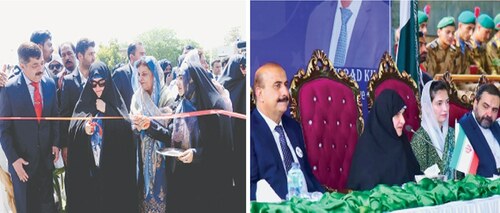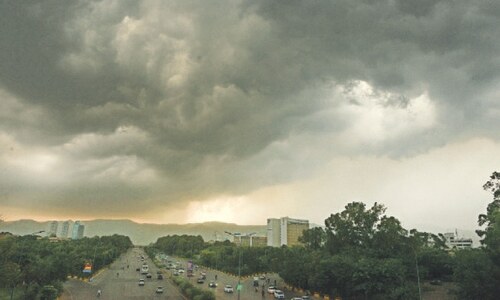ISLAMABAD: With around 22 million people in Pakistan still practice open defecation, the World Toilet Day (WTD) being observed on (today) Saturday (Nov 19) to raise awareness and inspire action to tackle the global sanitation crisis, and revisit the commitment that the governments have made to its people of providing safe sanitation.
The official theme for World Toilet Day 2022 was ‘Making the invisible visible’. The theme places special focus on the impact of the sanitation crisis on groundwater.
Globally the theme for the year 2022 has been selected as the underground water reserves are “Invisible”, but the poorest and most marginalised communities lacks the means to detect water contamination and afford for alternative safe options.
Groundwater is the world’s most abundant source of freshwater. It supports drinking water supplies, sanitation systems, farming, industry and ecosystems.
Arif Jabbar Khan, Country Director WaterAid, has said in a statement that the central message of World Toilet Day 2022 is that safely managed sanitation protects groundwater from human waste pollution.
He highlighted that the current statistic shows that still, 79 million people in Pakistan lack decent sanitation and about 92pc of the wastewater is untreated and goes directly to water bodies.
“It explores how inadequate sanitation systems spread human waste into rivers, lakes and soil, polluting underground water resources,” Mr Khan said.
Meanwhile, to ensure the universal coverage of water, sanitation and hygiene (WASH) under SDG-6 and with a particular focus to ensure safe toilets for all by 2030, WaterAid Pakistan, Unicef and GIZ have planned a series of events with all stakeholders to mark World Toilet Day 2022.
WaterAid is an international NGO working in 28 countries including Pakistan, with the vision that everyone - everywhere has access to safe drinking water, sanitation and hygiene (WASH).
Meanwhile, National Consultative Workshop for Disabled People’s Organisations lamented lack of WASH services in public areas and demanded that government should address these concerns through the implementation and enforcement of laws and regulations.
The key concern was the lack of accurate data on the status of WASH services for persons with disabilities (PWDs).
Ms Ghina Mehr representing Network of Organisations Working for People with Disabilities (NOWPDP) stressed the importance of WASH services for the PWDs as it was a matter of human dignity.
Narrating her experience, she said that lack of menstrual health management facilities directly impacts female participation in schools and workplaces, and in the case of PWDs the impact becomes multifold.
The event ended with policy and practice-related recommendations and a plan for future collaboration for ensuring access to WASH services for all in public and private spaces.
Published in Dawn, November 19th, 2022













































Dear visitor, the comments section is undergoing an overhaul and will return soon.